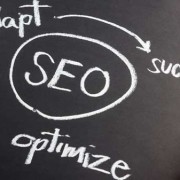What Are The Benefits of Organic Search Vs Paid

As a small business owner, you are well aware of the importance of driving traffic to your website, but what is the best way? Is it preferable to market using pay per click (PPC) marketing techniques or via organic searches? As it turns out, each method has its own advantages, and only you can determine which is better for your enterprise.
What is Organic Search?
When someone enters a string of keywords in an attempt to find correlating websites, the results that come up on the left hand side are called organic search results. For example, if you sell pearl earrings on your website, you need to optimize your site to draw people in who have searched for that particular phrase using Google or another search engine. The more you use search engine optimization (SEO) and rich content to bring in results similar to your target words, the higher your site will be in the rankings. Your goal should be to gradually move it up onto the first page of results and ultimately into the top three.
With high rankings comes credibility; people often assume that if a site shows up at the top of the rankings, it is the most relevant in the industry for the term they are searching. If your content is also evergreen, meaning that it is not dated and can be just as applicable years from now, this will also help your position in the SEO rankings. These qualities feed off each other; in other words, if you reach the top of the list, you are more likely to stay there because you are perceived as an authority. Organic searches also tend to yield higher click through rates, meaning that people are more likely to go to your website.
There are some drawbacks of organic search that you should also consider. It takes time, often months, before the benefits pay off. Only you can know if you have that time to spare. In addition, either you or someone else needs to spend time creating content and tweaking your SEO strategies. Rankings domination won’t happen without hard work.
What is Paid Search?
When a user conducts an Internet search using certain keywords, he or she often comes upon paid ads that are sponsored by the businesses in question. These are paid search results, and they typically appear to the right of organic search results. The precise placement of these ads depends on a bidding process as well as a quality score determined by the search engine. As soon as your payment for the ad’s placement goes through, you will immediately see it in the results. Furthermore, you can target the audience you want to reach by selecting factors such as age, sex and income level. You will definitely get more results if you pay for terms that predict purchases or cite specific brand names.
As you might expect, paid searches have their disadvantages as well. For one thing, they can be very costly; the most competitive, desirable keywords require the highest payments. For busy entrepreneurs and people who are novices in this arena, juggling these campaigns can demand time and expertise that they simply do not possess. Furthermore, ads disappear as soon as the payment period is up. Finally, consumers tend to distrust paid ads, believing that businesses are solely in it for a quick sale.
In the end, you will gain the highest degree of success by getting the best of both worlds through using both organic and paid search. This enables you to have non-time-sensitive content and credibility while also enjoying a kingly position at the top of the rankings and benefiting from higher click through rates. Why not take advantage of all of the opportunities that organic and paid searches can offer? Your bottom line will thank you.







